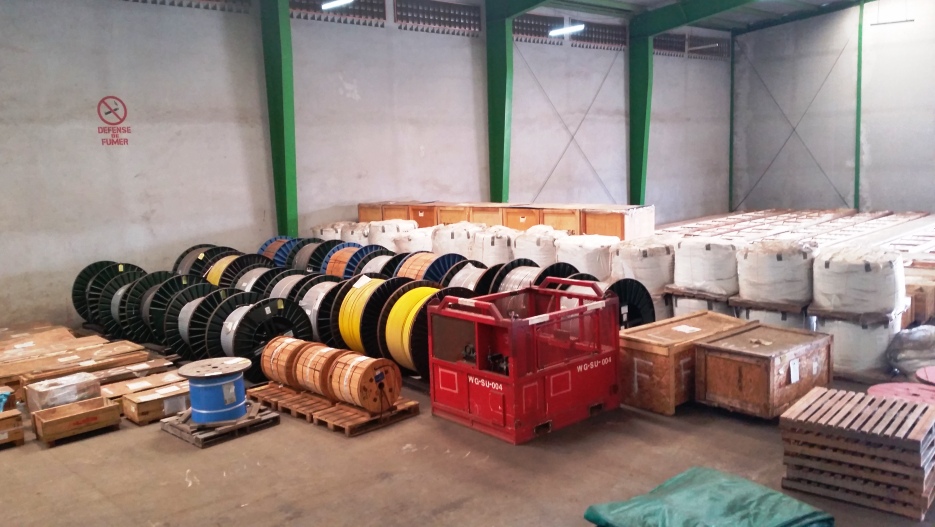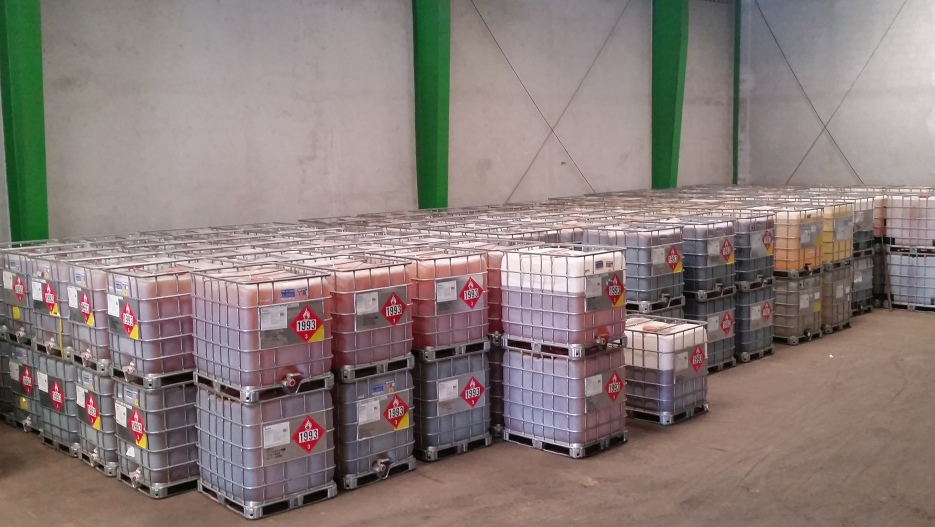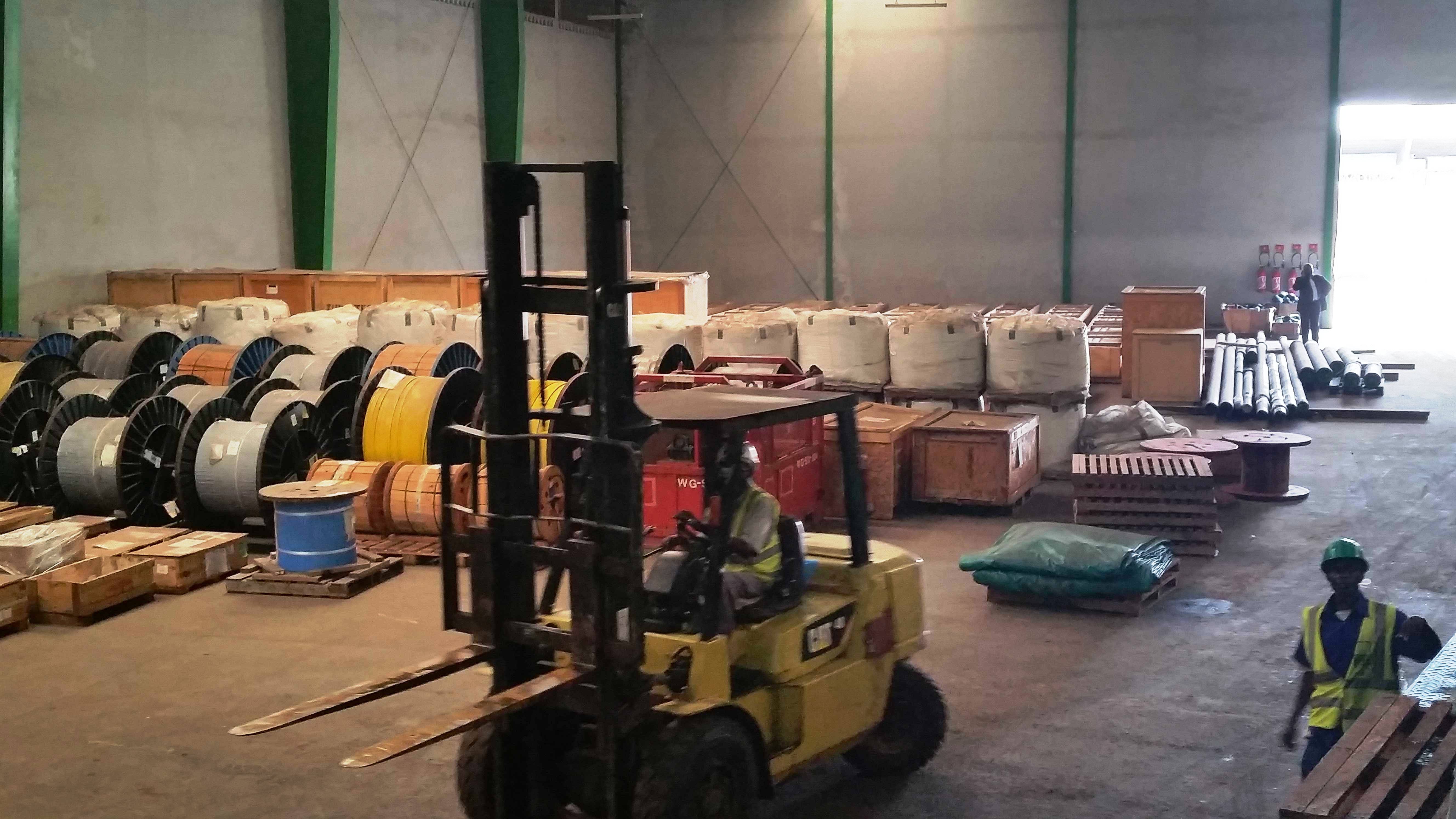SIMAT: Oil and Gas Activities and Warehousing Services
Internationally, we work with well-known companies, such as Panalpina, CEVA Logistics and DWF. These companies assist us in terms of our international business with things such as transactions, collections, deliveries and shipping and also responding to the bids for which we are contacted.
Interview with Serge Mambo, Deputy CEO of SIMAT (Société Ivoirienne de Manutention et de Transit)
SIMAT has recently created a department for the oil and gas sector. Can you tell us about your activities in this regard?
We are offering all of the international operators that come and set up in Ivory Coast within the framework of exploration for petroleum or gas, a logistical platform, i.e. a space to be able to store their material and on which they will transit the material that comes off of the petroleum platform or that needs to go onto it. This will also be a site where any necessary reparation work can be carried out. It will offer storage capacity, and will allow the operators to have some extra space for when materials arrive, for them to be able to store them whilst they examine and analyse them before deciding whether to raise them onto the platforms or return them for export.
As a professional logistics provider, we at SIMAT offer the operators not only the space mentioned above but also our know how in terms of logistical equipment, maintenance and everything that has to do with the management of the equipment that we offer these operators.
What is the difference with the oil and gas sector? Is there specific equipment for this sector that requires a different kind of platform?
Yes, it is totally different. Until now we had been working with general cargo. We worked particularly with coffee and cocoa, and then also with cashew nuts. We wanted to branch out of that field to be able to work on other areas of greater value. That is important. In the domain of oil and gas we found something new. It is a new sector that provides greater value and offers more for us than the fields we were previously working in. These factors are what encouraged us to get into the oil and gas market. We are discovering and learning a lot that you perhaps wouldn’t need to know when working in normal logistics. This requires expertise. There is a lot to learn and that is why myself and Mr Eholie wanted to enter this sector.

What is your competitive advantage over other platforms that are offered to these operators?
There are competing companies in this sector but what has been the clincher in terms of our competitive advantage is the closeness that we have with the oil base called Petroci where the supply boats that go out to sea to the platforms, land. We are basically located 50m to 70m from the base and that is important in terms of responsiveness and speed in making available the equipment, in removing and delivering material, etc. This has really been our great advantage. The main client that we have on this site has been looking around for the right option but when we made them the offer, with the modifications that we have made to our site to make it appropriate for their needs, they accepted and today we can now offer our site and our potential to other large players.
Is there anything you would like to add about your work in this sector? Do you anticipate any particular developments in 2015?
Yes. The site that we offer is approximately 8 to 10 thousand m2 and it is composed of warehouses and hangars that serve as maintenance and drilling workshops within our structure.We envisage in the very near future an expansion of the site and also we hope to be able to offer the site and our services to other companies.
Today, there are two oil fields that are currently actively in production or exploration activities. These are the oil fields Baobab and Espoir. They are very large and the ships that arrive come in with large quantities of materials and equipment that requires space. The space that the Petroci base offers them right now is not sufficient because there are various important companies using that space. Thus there needs to be an alternative, we have to find a site that could allow for these companies to complete their activities easily. We have decided to expand our area for this purpose using area from the existing site that was used for cocoa and cashews. We are going to gradually cede the space to our oil and gas activities because the stakes are higher and the companies that we deal with are also just as important and we must ensure we are ready and present at the opportune moment. This is why we are expanding.
We are developing in the field of logistics, warehousing, and oil and gas. We want to diversify a lot more. Of course there is oil and gas, but for those that want to deal in transit in other domains, I would say that as Ivory Coast has turned towards agriculture and exports, we need more and more warehousing.
I mentioned earlier the field of coffee, cocoa and cashews; these are weighty sectors for us. By letting go of two warehouses to be able to profit from the oil and gas sector, we have along the way lost space for storing the cocoa, coffee and cashew products. So we have thought of a solution, we are going to be acquiring a space beyond the Abidjan airport that measures 5 hectares, on which we are going to set up a zone for loading, warehousing, maintenance and container and product management. We are also going to install the handling and maintenance workshops for our machinery, particularly the heavy machinery such as the challengers and elevators that were initially on the site that we have ceded to oil and gas. As I mentioned earlier the sector of coffee, cocoa and cashew was our speciality area before and so the fact that we agreed to relocate and are now dividing up our space for the oil and gas sector shows just how important this new sector is for us. It is going to allow our company to move into and develop a new sector for us.
On the location that I mentioned just behind the airport, we currently have a project going on, which involves the construction of three 3,000 m2 warehouses. Additionally, we are building a site dedicated to the parking of containers whether empty or full, containers in transit, refrigerated containers, etc., that will be there according to the time it takes for them to connect and deliver to the site or to disconnect and deliver to the port of Abidjan for exports, etc. Thus it is a site that is for both imports and exports. This site is not only going to be receiving cocoa, coffee and cashew as I mentioned earlier, but also cotton which is a very significant product that is gaining importance here and is one that we wish to deal in outside of the concession where we are now.
We want to expand into oil and gas not only because of what it represents in terms of volume of activities and handling. However, obviously this all comes at a cost. We are investing and we are relocating, but this is because we have something to gain from it. There really is gain to be had because this domain is very promising.

Can you tell us the name of the company that is working with you?
CNR (Canadian Natural Resources). They are working with us. They have two oil fields that they are exploring, Baobab and Espoir as I mentioned earlier. They are among the largest oil fields in production in Ivory Coast.
How do you see the development of SIMAT in 2015? In what direction do you wish to head?
We are developing in the field of logistics, warehousing, and oil and gas. We want to diversify a lot more. Of course there is oil and gas, but for those that want to deal in transit in other domains, I would say that as Ivory Coast has turned towards agriculture and exports, we need more and more warehousing. Those who have more warehousing capacity deal with more volume of products for export and more clients. We are in the process of developing this sector by building more warehouses and also storing and parking areas for containers. We are also an agent for the maritime line NileDutch, which means we deal with a significant number of import and export containers for them that we must store somewhere. We also have existing contracts with other clients that require us to carry out handling, delivery, etc., and so we need an area for this transit. We are developing this aspect and we must invest in materials and heavy machinery such as challengers, fork lifts and equipment for transporting oversized cargo, etc., without which we would not be able to do any of this. All of this allows us to be able to compete in bidding processes either nationally or internationally and means that we aren’t left behind watching others do the work when we have the expertise. We have the necessary skills, our workforce is well qualified and can deliver what is asked. I think that we can offer an excellent service both locally and internationally.
Internationally, we work with well-known companies, such as Panalpina, CEVA Logistics and DWF. These companies assist us in terms of our international business with things such as transactions, collections, deliveries and shipping and also responding to the bids for which we are contacted.
SIMAT is also present in San Pedro which is the second port of Ivory Coast. It is the most important port for exports of cocoa in the world. We had to be present in San Pedro due to the volume of exports of cocoa in the area. We are present there with our warehouses that total an area of about 17,600 m2. We have an industrial unit for the treatment and reprocessing of cacao that arrives from the bush and also a loading and container storage platform. As well as coffee and cocoa, we have also recently started to deal with cotton that we receive from certain companies such as Ivory Coast Cotton (Côte d´Ivoire Coton) and Ivory Cotton (Ivoire Coton). We also aim to work with two other companies from the hinterlands to whom we have offered our services concerning the direct loading and handling of their produce. It is fair to say that it was difficult to attract these companies but today with all that we have been able to prove in terms of our capacity and expertise we have had many enquiries. Today we have companies such as Tan Ivoire, Omni Value, Ajari International, GAP, etc., that work in the domain of cashew nuts and who come to us to deal with the exportation of their products. These warehouses have been in great demand, to the point where unfortunately we have not been able to meet the demands of all of these clients.Today we are in the process of improving this situation with the future construction of a warehouse that measures more than 2,000 m2 that will help us meet the demand. For now, we are renting on a more or less short term basis some warehouses for 4,000 tonnes in order to increase our capacity potential.

In terms of further development, in the same line, we have decided to set ourselves up in the second city of Ivory Coast, Bouake. This large city today acts as a logistical dry port. We established ourselves there because we understand the importance of this region and because it is an important crossroads and a city that is on the rail network. We are there, principally working with cotton and cashews. We are going to begin our activities there at the end of February and we have a warehouse that is just over 3,000 m2 and an area for loading and storage of between 6,000 to 7,000 m2. This allows us to meet the demands of our clients, which would not be possible just from Abidjan because of the issues of congestion in the port zone in terms of documentation and delivery of containers, etc. We have selected and offered some of our clients, who have agreed to follow us to Bouake because last year they did so with our colleagues and competitors Bolloré. This year due to the offers that we have proposed to these companies, I can say that today we have 5 or 6 clients working with cotton and cashews who have accepted to work from Bouake. This allows us to do all of the customs and administrative business and paperwork earlier and so the train wagons enter directly into the port of Abidjan with all of the documentation ready to embark on time. This makes the process easier and faster. Bouake is quite unrestricted so we can have lorries stop in Bouake, unload their merchandise which we then reprocess, load, complete the customs paperwork, and then load up the trains whose wagons enter directly into the port which means we don’t have to do any further handling in Abidjan, saving quite a lot of time.
We have developed various axes: oil and gas, the site beyond the airport of Abidjan, San Pedro and Bouake. Thus as you can see we are not static; SIMAT is developing and is dynamic. We want to develop even further.